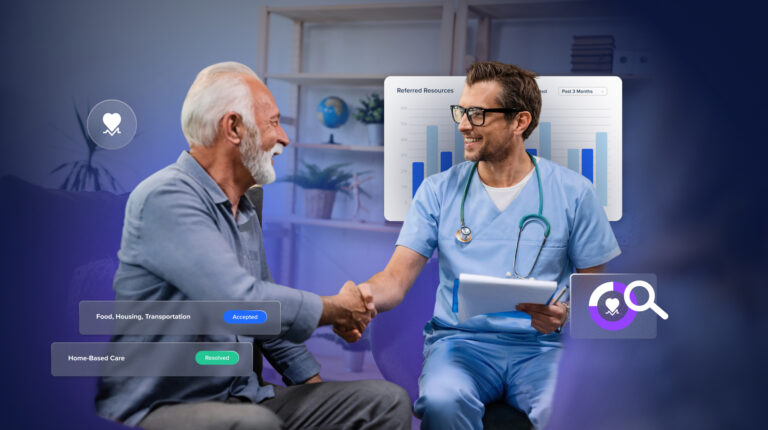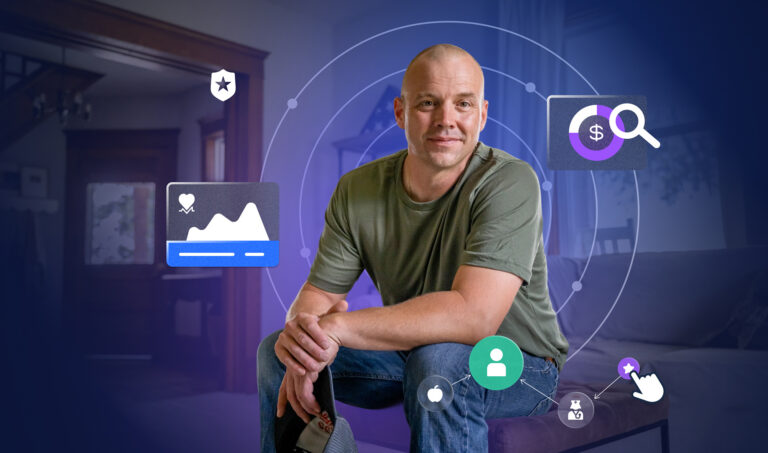
Partnering with Unite Us to Address Rural Health Inequities
This post is part of our community blog series that highlights best practices and solutions from our network partners. Today’s post is written with contributions from Devon Lopez, Abbie Szymanski, and Tracy Jo Ingram.
Why are rural communities at greater risk for poor health outcomes? A simple Google search will return a staggering number of statistics and factors contributing to the numerous health disparities that impact the almost one-fifth of Americans living in rural areas. Amongst the many contributing factors, access to healthcare consistently presents itself as a challenge for individuals and families living in rural areas across the country.
Unite Us is committed to supporting rural communities across the 42 states we currently work in. Our local community engagement teams have the pleasure of partnering with organizations and coalitions to do innovative work in rural communities. Some of the most common rural inequities we encounter continue to be access to behavioral health services, lack of availability of broadband internet, and access to transportation resources.
Network responses and best practices to address common rural health challenges
Access to mental and behavioral health
The ADK Wellness Connections network, powered by Unite Us, covers a wide rural region in upstate New York and has seen a massive increase in mental and behavioral health needs since the start of the pandemic. Simply put, there are not enough service providers available to meet the community’s needs. As a result, a network partner, Cornerstone Mobile Counseling, launched an innovative mobile counseling response to address this gap. Through this service, mental health providers across 24 counties can travel to client’s homes. Providing at-home services enables clients to have their needs met without having to travel or find an office with availability.
Lack of availability of broadband internet
Although healthcare providers have increased their ability to offer telemedicine to support the increasing need for mental and behavioral health services, telemedicine is only accessible to those who have in-home broadband internet. The need for broadband access is a growing challenge as we continue the shift to digital communication. Many aging and remote populations lack access to high-speed internet.
According to the Federal Communications Commission’s Eighth Broadband Progress Report, “Nearly one-fourth of the population—14.5 million people—lack access to this service. In tribal areas, nearly one-third of the population lacks access. Even in areas where broadband is available, approximately 100 million Americans still do not subscribe.”
The lack of accessible traditional provider options for rural America, coupled with the opportunity to get treatment online, suggests that broadband access is a health equity issue. The bottom line is that we need broadband to expand health care access. Unite Us is actively supporting partners in their CHART application process, which can enhance digital technology.
In the interim, the most rudimentary solution to access barriers is transportation. Clients need to be able to get to their health and social care providers, if nothing else.
Access to transportation resources
As a social determinant of health, access to affordable transportation is fundamental to mental, physical, and emotional well-being. In rural and urban settings, transportation impacts the use of health-related services because individuals without reliable transportation are more likely to delay or forgo necessary appointments, preventive care, and health maintenance activities.
New York’s largest rural county, St. Lawrence county, is not served by any interstate highway system section. Due to insufficient road access and high poverty rates, nearly 20 percent for the adult population, 30 percent for the child population, and the autonomous Mohawk settlements struggle to access necessary resources, including education, employment, health, and social care.
Recognizing these barriers, our network partner, Adirondack Health Institute, awarded the St. Lawrence Health System a $154,000 access-to-care grant for low-income St. Lawrence residents. The Volunteer Transportation Center, an Adirondack Wellness Connections network partner, now accepts assistance requests from community members and electronic referrals through the Unite Us Platform.
The rides are made accessible in many different ways: fuel gift cards, mileage reimbursements, free bus rides, and a program created wherein volunteer drivers provided car rides to people from their homes to the bus stop. In this community, in just one year, nearly 1,100 rides have been coordinated through the Unite Us Platform, ensuring underserved clients got everywhere from dental check-ups to cancer treatments.
Enhancing your rural health equity strategy
Partner with Unite Us today to coordinate multiple services, track data and outcomes, and identify and address trends and gaps in your community. Our local teams bring together community-based organizations to seamlessly address health disparities using Unite Us as a common tool. As we expand and grow our networks, prioritizing rural communities and ensuring a broad range of community-based organizations’ participation in these networks is a priority.



